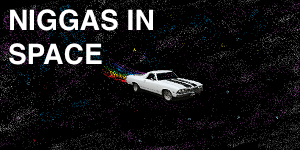2019-03-21 at 11:16 AM UTC
gadzooks
Dark Matter
[keratinize my mild-tasting blossoming]
Originally posted by Common De-mominator
There's nothing to support the theory and the theory does not fit the data nor even really make testable predictions, nor answers the Hard Problem.
I mean you can read it if you want, but understand that you're not really receiving any information about reality from it.
And I want to remind you that I am not taking Jaynes' theory as irrefutable gospel. My only reason to even intervene when you and Obbe were discussing it was when I could tell you were dismissing it entirely too flippantly.
Are you SHARK/Captain Falcon/etc? If you are, carry on with that IIT theory. That was actually pretty cutting edge and by far the most empirically testable theory about consciousnesss I've ever seen. But you don't have to dismiss Obbe's (or anyone's, for that matter) contributions to the discussion at hand with such crude insensitivity.
It's not like IIT is without dissenters. It's essentially a very sophisticated house of cards built on a foundation of axioms that are just as speculative as Jaynes' theory.
The following users say it would be alright if the author of this
post didn't die in a fire!
2019-03-21 at 11:59 AM UTC
Obbe
Alan What?
[annoy my right-angled speediness]
Originally posted by gadzooks
And I want to remind you that I am not taking Jaynes' theory as irrefutable gospel. My only reason to even intervene when you and Obbe were discussing it was when I could tell you were dismissing it entirely too flippantly.
Are you SHARK/Captain Falcon/etc? If you are, carry on with that IIT theory. That was actually pretty cutting edge and by far the most empirically testable theory about consciousnesss I've ever seen. But you don't have to dismiss Obbe's (or anyone's, for that matter) contributions to the discussion at hand with such crude insensitivity.
It's not like IIT is without dissenters. It's essentially a very sophisticated house of cards built on a foundation of axioms that are just as speculative as Jaynes' theory.
Thanks for stating this so eloquently... I do sincerely hope you get a chance to read the book, I would be interested in hearing what you think about it.
The following users say it would be alright if the author of this
post didn't die in a fire!
2019-03-21 at 12:48 PM UTC
It's not by far the most empirically testable. In principle it is testable but in fact it is hard to imagine how to operationalize it. Current GWS-ish neuroscientific theories are plenty testable and have produced testable predictive models of consciousness. The main objection to these composite, complicated neuroscientific models is that even if you know what correlates give rise to what conscious state, you don't know why specifically those correlations are structured as they are. Except, we are starting to understand these understandings. They're just really complicated.
I don't even think IIT is actually fundamentally correct, it just is a good start with regards to what kind of physical structures might support the phenomenological properties of consciousness, the biggest being integration: for example in viewing the whole of my visual field as one "image".
I think IIT makes a massive error in attempting to identify conscious states with the states of integration: if this were the case, and phi demonstrates the level of consciousness then there are other integrated structures that might be more conscious than you. For example a glass of water would have an immensely high phi value.
Ultimately I believe information integration is fundamentally important to solving the hard problem, but it is not consciousness in and of itself. But if you integrate and crunch information a certain way, you can create a conscious information structure.
2019-03-21 at 6:38 PM UTC
A more common response is the one given by neurophilosopher Patricia S. Churchland, an emerita professor at the University of California, San Diego. “It is fanciful,” she says of Jaynes’ book. “I don’t think that it added anything of substance to our understanding of the nature of consciousness and how consciousness emerges from brain activity.”
Same article.
2019-03-21 at 6:44 PM UTC
Obbe's understanding of consciousness is entirely based on Westworld.
2019-03-21 at 7:08 PM UTC
No, consciousness does not exist objectively, much like rainbows
2019-03-21 at 7:12 PM UTC
Atoms don't exist, they are just some fields interacting. Fields don't exist it's just some properties of a hyperspace. A hyperspace doesn't exist, it is the mathematical description of a higher dimensional n-gon.
Etc.
2019-03-21 at 7:14 PM UTC
Or or or or, here's a genius idea: these are real patterns in the world that emerge from lower level phenomena, and they can be studied as their own class of objects, and often better than is done reductively. E.g. Biology for animals as opposed to physics.
2019-03-21 at 7:14 PM UTC
Science dun exits its all math guize

